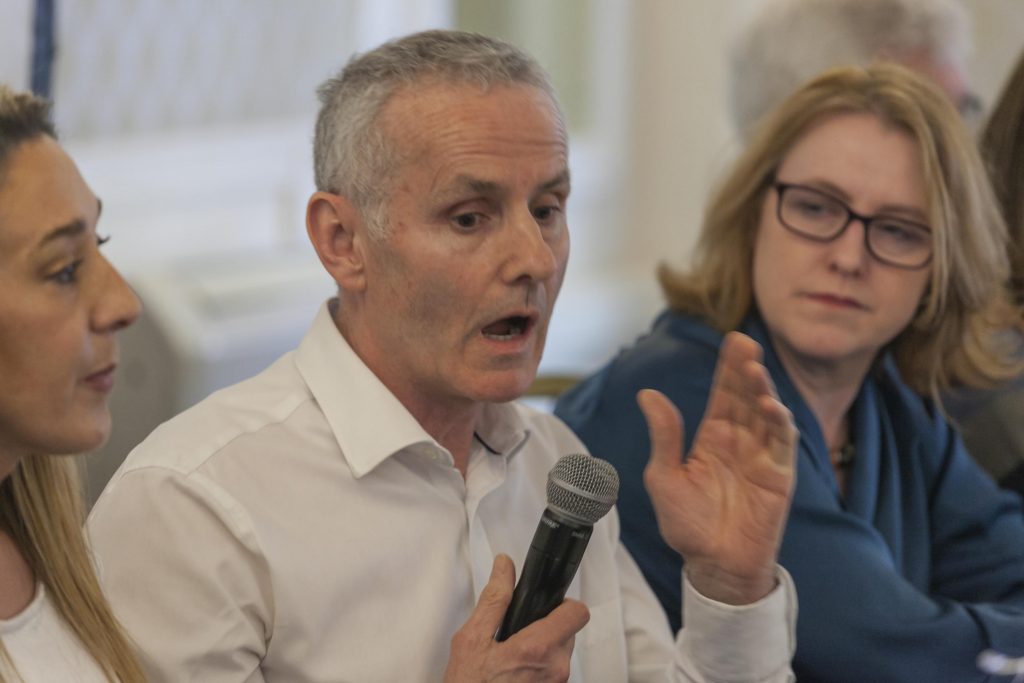Commission launches awaited EU climate law proposals

March 5th, 2020
The European Commission has outlined its long-awaited proposal to enshrine the EU’s 2050 climate neutral commitment in law that critics say is simply too little, too late to avert the climate crisis.
The European body argues that the European Climate Law – the heart of the European Green Deal according to Commission President Ursula von der Leyen – would see the EU become the world’s first climate neutral continent by mid-century.
The Commission first set out its vision for a climate-neutral EU by 2050 in November 2018 in line with the Paris Agreement objective to keep the global temperature increase to well below 2°C and pursue efforts to keep it to 1.5°C. Under the proposed law, all EU Institutions and Member States would be collectively bound to take measures at EU and national level to meet the target.
Progress will be reviewed every five years in line with the global process under the Paris Agreement and the proposed law would require the Commission to explore options by this September for a new 2030 target of 50-55 per cent emission reductions compared to 1990 levels.
According to the Commission, the proposed legislation will be later amended to include the new 2030 emissions reduction target determined following the broad impact assessment process.
By June 2021, the Commission will review, and where necessary propose to revise, all relevant policy instruments to achieve the additional emission reductions for 2030. The proposed law would also give the Commission the power to issue recommendations to states acting in a manner inconsistent with the 2050 objective.
In January, the Commission put forward an investment plan to drum up €1 trillion of sustainable investments over the next decade alongside the Just Transition Fund to ensure that the transition towards a climate-neutral economy happens in a fair way.

Criticism comes thick and fast
However, criticism has already rolled in from academics, NGOs and grassroots activists, as well as Greta Thunberg, about a perceived overall lack of ambition in the proposed legislation.
Luke Edwards, the climate change and land use policy officer at BirdLife Europe, said that the Commission’s proposal is “too vague [and] too weak” and also ignores the role of nature “as an ally in the fight against the climate crisis”.
He added that the legislation leaves too many escape routes for both for Member States and the Commission to “ignore the alarm bells that science has consistently been ringing” as it lists numerous factors such as cost-effectiveness, economic efficiency and economic competitiveness that must be considered in setting the trajectory toward climate neutrality.
“Whether this law ends up being more hot air or a true turning point in how things are done will largely depend on whether its implementation is based on today’s science or not,” he warned.
Green Party MEP Ciarán Cuffe expressed his concern that the Commission’s proposals will lock the EU “into more than a decade of low ambition on emissions reduction targets”.
“Europe must go to the crucial COP26 climate negotiations in Glasgow in November with a clear pathway to carbon neutrality, showing the rest of the world that this goal can and will be achieved. We need to take difficult but important decisions now, and kicking the can down the road to buy another decade of dangerous emissions levels is simply irresponsible,” he said.
Earlier this week, 12 Member States signed a letter asking for the setting of 2030 targets to be brought forward to June. Ireland, however, was not a signatory, with MEP Grace O’Sullivan outlining her disappointment yesterday that we “continue to take a back seat on climate action”.
“We know that Ireland is on course to miss its 2030 targets. Supported by the EU Commission, Ireland needs to start playing an ambitious and constructive role, rather than resigning ourselves to paying huge fines for our inaction,” she said.
Visiting the Environment Committee of the European Parliament yesterday, climate activist Greta Thunberg said that the Commission’s proposals are “a surrender”.
“Nature does not bargain, and you cannot make deals with physics. We will not allow you to surrender our future,” she concluded.
Irish climate law
In January, the Government outlined the key aspects of its proposed new climate Bill that it says aims to drastically reduce emissions and put the country on track for net-zero emissions by 2050.
Although the Bill fell with the dissolution of the Dail prior to the General Election in February, it is likely to be brought back to life once a new Government is formed.
The draft scheme of the Climate Action (Amendment) Bill 2019 includes a provision to make the adoption of five-year carbon budgets a legal requirement starting in 2021.
The Bill also seeks to strengthen the role of the Climate Action Council in recommending climate budget and policies, as well as requiring decarbonisation targets across all sectors, including agriculture, transport, housing, and energy.
The Council will replace the existing Climate Change Advisory Council that has been widely viewed as under-resourced and too heavily stocked with economists. The proposed Bill would see the Director of Met Éireann join the Council and a limit of two terms for the chairperson.
The proposed legislation would also ensure that the Climate Action Plan is updated annually, and also seeks a ban on the registration of new fossil fuel cars from 2030. The Bill also seeks to stop the granting of NCTs for such vehicles from 2045.
[x_author title=”About the Author”]







